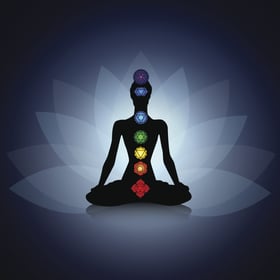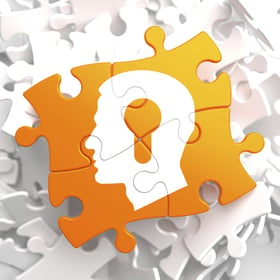 What is holistic addiction treatment? In short, it encompasses the entire person: the physical, the mental, the emotional, and the spiritual. Why is it important? Because if you don't address all these levels, you'll be off balance and will begin using again.
What is holistic addiction treatment? In short, it encompasses the entire person: the physical, the mental, the emotional, and the spiritual. Why is it important? Because if you don't address all these levels, you'll be off balance and will begin using again.
You’ve seen it happen: Someone you know has a favorite approach to weight loss or other issue that has helped them a great deal. As a result, they want to solve everyone’s problems with that particular technique.
Maybe the 12 Steps helped your aunt, or maybe your friend recovered from addiction after undergoing Eye Movement Desensitization and Reprocessing (EMDR). Now they’re both telling you that you need the exact same experience to treat your addiction.
Despite their enthusiasm, you sense that their solutions just aren’t a fit for you. You know that some people find healing within their particular context, while others try the same thing only to feel worse off than they were before. When this happens again and again, it’s likely that something is missing.
A holistic addiction treatment model that encompasses the whole person could be the missing piece.
What Is Holistic Addiction Treatment?
A true holistic addiction healing model addresses the four main components of health and the whole person:
- Physical
- Mental
- Emotional
- Spiritual
This post will address the 4 different levels of health and describe how a rehab center can facilitate healing within each component.
The Physical - What You Do
Learning about the physical realities of addiction is important. For example, when counselors teach rehab participants about habit loops and habit formation, it helps individuals understand the physical forces driving their addictive actions.
Likewise, Cognitive Behavioral Therapy (CBT) empowers people to see how mental illness contributes to dysfunctional behaviors. It also helps them to create more functional action plans.
All of this is useful when it comes to promoting habit change. However, humans can’t sustain long-term behavioral change by focusing on the physical alone. If a therapist addresses the behavioral component of addiction without looking at the deeper realities, they set a people up to fail.
True, the individual may start off well, but since no one can be vigilant all the time, sooner or later they will get tired or upset or vulnerable. Consequently, they’ll let their guard down and lapse back into familiar patterns. In the end, they’ll feel frustrated and discouraged.
Some residential rehab programs focus solely on the physical symptoms and realities of drug addiction. Such facilities may use aversion therapy and counter conditioning (that is, triggering physical discomfort in the presence of the addictive stimulus) to treat addiction.
While this can work in the short-term, it can also backfire. Creating an aversion to one substance can cause a person to turn to a different, potentially more dangerous one. Individuals often start using different props to express the familiar pain.
The Mental - What You Think
Addressing thought patterns that fuel addiction is vital. If you don’t train yourself to calm your racing mind or counter negative thoughts with positive ones, you may be setting yourself up to drink or use again.
Fortunately, there are plenty of counseling strategies that can help you cultivate this kind of mindfulness. For example, one mode of mental therapy is Rational Emotive Therapy (RET).
RET is about healing the judgments and limiting beliefs that are present in our lives. In this framework, mental upset is seen as people living in the past or in the future and thus away from their loving center. Participants work on living in the “here and now,” training their minds to focus on the present rather than drifting back and forth into memories or imaginings.
That said, make sure that you’re using the right tools to solve the right problems. Generally, you can't solve an emotional problem using a mental-level counseling strategy alone.
The Emotional - What You Feel
Taking a look at the feelings of guilt, shame, self loathing, hopelessness, depression, anxiety, and panic that drive addiction is key.
When you work with a trained therapist to address the emotional component of your addiction, you may find that a lot of “old stuff” gets stirred up. That’s only natural, as finding the root causes of destructive behaviors takes you back in time.
Also, remember that just because traumatic events happened a long time ago doesn’t mean that you’ve processed the feelings surrounding it. Until you allow yourself to actually feel your painful feelings, they will stay with you in the form of dysfunction and stress.
As such, it’s helpful to work with a practitioner trained in counseling strategies such as Gestalt, Object Relations, Developmental Psychology, and Neuro Linguistic Programming (NLP). These techniques focus on how past issues created emotional wounds that need to be healed in order to live a life free of these intense negative feelings.
The Spiritual - Who You Truly Are
Examining the spiritual reality of life is the fourth and final piece of the holistic addiction treatment model. However, it doesn’t mean that you need to join a particular religion or group. Instead, you can simply focus your attention on the idea that there is a level of consciousness beyond that which you can see.
Things that work at this level are psychosynthesis, meditation and core transformation.
Traditional 12 Step programs and purely spiritual programs such as Celebrate Recovery focus on the spiritual component of healing, while conventional psychology emphasizes the first three levels and excludes the spiritual level.
When a program fails to include all four levels, it is incomplete and imbalanced. But when a recovery program incorporates the spiritual level along with the physical, mental, and emotional, it completes the foundation for healing and restores true balance to the individual.
What is holistic addiction treatment? Watch The Clearing founder and CEO Joe Koelzer explain the 4 levels:
What is Holistic Addiction Treatment? Putting the pieces together
 As you can see, a real holistic addiction treatment model integrates all four levels of our existence - the physical, the mental, the emotional, and the spiritual.
As you can see, a real holistic addiction treatment model integrates all four levels of our existence - the physical, the mental, the emotional, and the spiritual.
At The Clearing, our experience has been that when rehab programs fail to address one or more of these elements, participants don’t fully recover. However, when addiction recovery programs do offer holistic treatment, amazing transformations take place.
High-caliber rehab programs feature a significant amount of individualized, professional counseling hours, as well as counselors who address each component of health within the therapy sessions that they provide.
As The Clearing founder Joe Koelzer said in a recent interview, “We're all holistic beings. A really good program not only has a lot of hours of counseling it but it has counseling modalities that work at each one of those levels.”
What is holistic addiction treatment? Learn more about this and our approach to addiction treatment with this free eBook.
Free eBook Download:
Healing Underlying Core Issues



